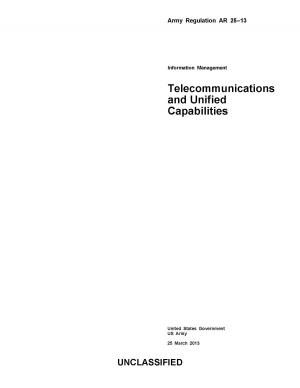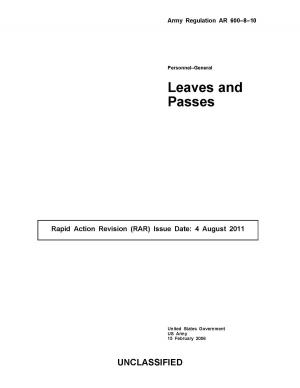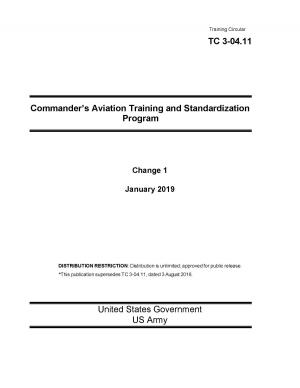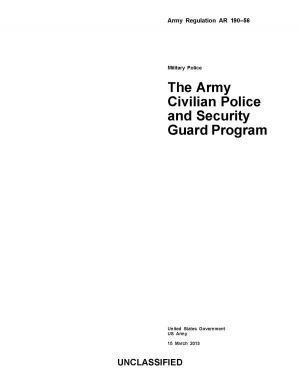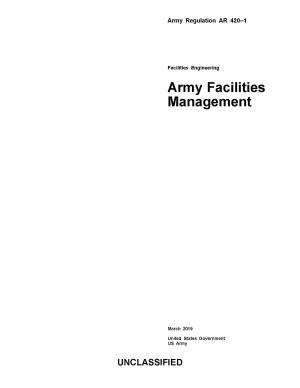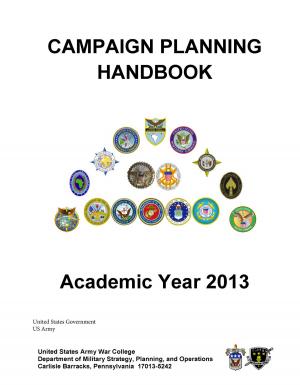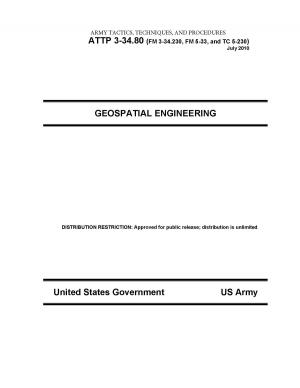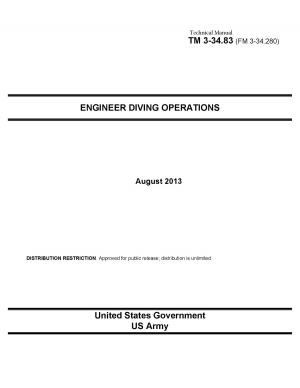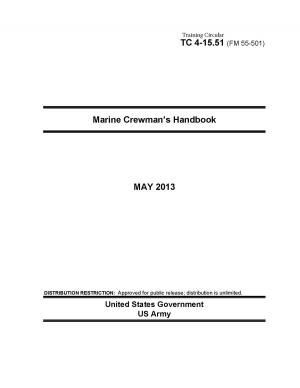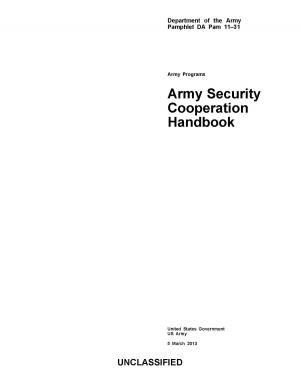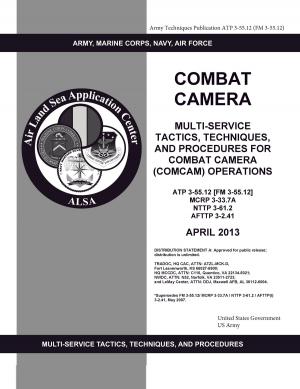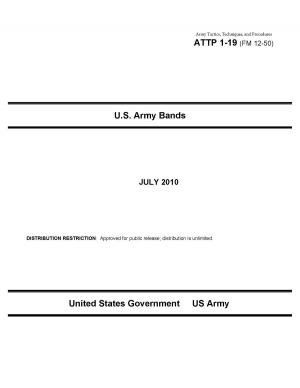Field Manual FM 3-90-1 Offense and Defense Volume 1 Change 1 14 June 2013
Nonfiction, Reference & Language, Study Aids, Graduate & Professional, Armed Forces, Science & Nature, Technology, Military Science, Reference, Guides & Handbooks| Author: | United States Government US Army | ISBN: | 1230000144933 |
| Publisher: | eBook Publishing Team | Publication: | June 25, 2013 |
| Imprint: | Language: | English |
| Author: | United States Government US Army |
| ISBN: | 1230000144933 |
| Publisher: | eBook Publishing Team |
| Publication: | June 25, 2013 |
| Imprint: | |
| Language: | English |
Field Manual (FM) 3-90 Volume 1 Change 1 contributes to the Army and joint community by providing guidance on the conduct of the offense and defense. It describes both combat-tested tactics and procedures that have been modified to exploit emerging Army and joint offensive and defensive capabilities. FM 3-90-1 expounds on the doctrinal fundamentals established in Army Doctrine Reference Publication (ADRP) 3-90. ADRP 3-90 must be read before reading FM 3-90-1, since that is where doctrine for the conduct of offensive and defensive tasks and the art and science of tactics is found. FM 3-90-1 addresses the basic tactics associated with the conduct of offensive and defensive tasks.
The principal audience for FM 3-90-1 is all members of the profession of arms. Commanders and staffs of Army headquarters serving as a joint task force or multinational headquarters should also refer to applicable joint or multinational doctrine concerning the range of military operations and joint or multinational forces. Trainers and educators throughout the Army will also use this publication.
FM 3-90-1 focuses on the organization of forces, minimum essential control measures, and general planning, preparation, and execution considerations for each primary offensive and defensive task. It is the common reference for all students of the art and science of tactics, both in the field and the Army school system. The offensive and defensive considerations in this publication apply to small tactical units, such as companies and battalions, even though most of the figures in this publication use the division and the brigade combat team (BCT) echelons to illustrate points in the text. Echelon-specific field manuals and Army techniques publications address the specifics of how each tactical echelon employs these tactical concepts.
FM 3-90-1 implements standardization agreement (STANAG) Allied Tactical Publication-3.2.1. Commanders, staffs, and subordinates ensure their decisions and actions comply with applicable U.S., international, and, in some cases, host-nation laws and regulations. Commanders at all levels ensure their
Soldiers operate in accordance with the law of war and the rules of engagement. (See FM 27-10.)
FM 3-90-1 uses joint terms where applicable. Most terms with joint or Army definitions are in both the glossary and the text. Terms for which FM 3-90-1 is the proponent publication (the authority) are marked with an asterisk (*) in the glossary. Definitions for which FM 3-90-1 is the proponent publication are boldfaced in the text. For other definitions shown in the text, the term is italicized and the number of the proponent publication follows the definition.
FM 3-90-1 applies to the Active Army, the Army National Guard (ARNG)/the Army National Guard of the United States (ARNGUS), and the United States Army Reserve (USAR) unless otherwise stated.
The United States Army Combined Arms Center is the proponent for this publication. The preparing agency is the Combined Arms Doctrine Directorate, United States Army Combined Arms Center.
Field Manual (FM) 3-90 Volume 1 Change 1 contributes to the Army and joint community by providing guidance on the conduct of the offense and defense. It describes both combat-tested tactics and procedures that have been modified to exploit emerging Army and joint offensive and defensive capabilities. FM 3-90-1 expounds on the doctrinal fundamentals established in Army Doctrine Reference Publication (ADRP) 3-90. ADRP 3-90 must be read before reading FM 3-90-1, since that is where doctrine for the conduct of offensive and defensive tasks and the art and science of tactics is found. FM 3-90-1 addresses the basic tactics associated with the conduct of offensive and defensive tasks.
The principal audience for FM 3-90-1 is all members of the profession of arms. Commanders and staffs of Army headquarters serving as a joint task force or multinational headquarters should also refer to applicable joint or multinational doctrine concerning the range of military operations and joint or multinational forces. Trainers and educators throughout the Army will also use this publication.
FM 3-90-1 focuses on the organization of forces, minimum essential control measures, and general planning, preparation, and execution considerations for each primary offensive and defensive task. It is the common reference for all students of the art and science of tactics, both in the field and the Army school system. The offensive and defensive considerations in this publication apply to small tactical units, such as companies and battalions, even though most of the figures in this publication use the division and the brigade combat team (BCT) echelons to illustrate points in the text. Echelon-specific field manuals and Army techniques publications address the specifics of how each tactical echelon employs these tactical concepts.
FM 3-90-1 implements standardization agreement (STANAG) Allied Tactical Publication-3.2.1. Commanders, staffs, and subordinates ensure their decisions and actions comply with applicable U.S., international, and, in some cases, host-nation laws and regulations. Commanders at all levels ensure their
Soldiers operate in accordance with the law of war and the rules of engagement. (See FM 27-10.)
FM 3-90-1 uses joint terms where applicable. Most terms with joint or Army definitions are in both the glossary and the text. Terms for which FM 3-90-1 is the proponent publication (the authority) are marked with an asterisk (*) in the glossary. Definitions for which FM 3-90-1 is the proponent publication are boldfaced in the text. For other definitions shown in the text, the term is italicized and the number of the proponent publication follows the definition.
FM 3-90-1 applies to the Active Army, the Army National Guard (ARNG)/the Army National Guard of the United States (ARNGUS), and the United States Army Reserve (USAR) unless otherwise stated.
The United States Army Combined Arms Center is the proponent for this publication. The preparing agency is the Combined Arms Doctrine Directorate, United States Army Combined Arms Center.

